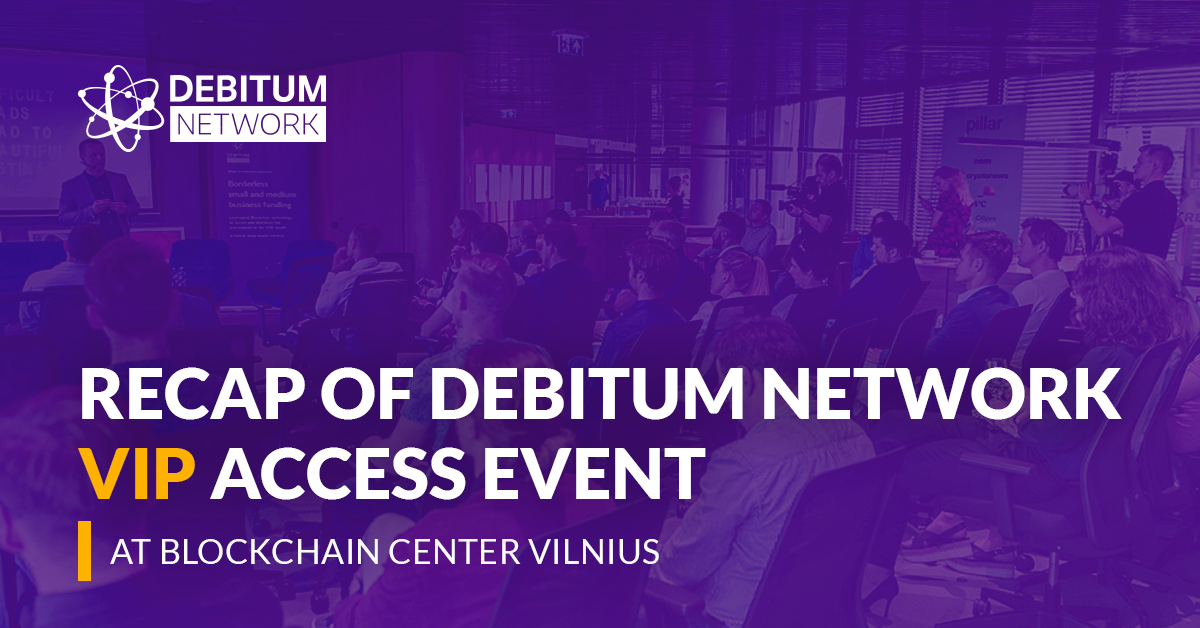Tag: investing in assets
Investment series: short term versus long term

Investment series: short term versus long term
One way to classify investing strategies is to take into account the time horizon. Long term versus short term is often discussed by financial experts, analysts and portfolio managers. One type of strategy by no means is better than the other. We may take the Oracle of Omaha Warren Buffet, who buys stocks and holds them indefinitely (and makes billions of $). On the other hand, there is speculator George Soros, who can keep his speculative position short term, just a few days and still make hundreds of millions of dollars as a result. Let us briefly cover the strategies and look at an alternative way to invest short term.
The difference of timing and expectations between the investments
A long-term investment will constitute investments, comprising stocks, bonds, real estate, and cash, that are intended to be held for more than a year. The long-term investments differ from the short-term investments in that the short-term investments will definitely be sold, sooner rather than later, whereas the long-term investments may never be sold.
Long term investments are those that have the likelihood to increase your profits over a long period of time. Those maybe index funds, stocks, long term government bonds. They tend to appreciate over the long haul and can withstand sharp and prolonged downtrends as an investor holding specific long-term instruments would not sell them when the financial markets are temporarily falling. Payout expectations are long term.
Short term investments will typically not last longer than a year and the investor holding financial instruments will look to convert them into cash any time opportunity presents itself. Payout expectations are short term. Among short term investors would often be traders or speculators that may hold their portfolio positions from a few hours to a couple of days. This is, naturally, increases risks as predicting daily or weekly fluctuations of any market is highly speculative and tremendously difficult thing to do. These types of investments may include: currencies, options, short term government bonds, stocks (for day trading) and etc.
Long term investors do not panic at short term market swings that go against them. Markets are cyclical. They go up and down, and then up again. On the other hand, those who have higher short-term expectations and take upon themselves higher risks should cut their losses quick when the market goes against them.
Investing in Short term business loans for small businesses
Short term investments may be not only securities, commodities, real estate or bonds but also loans for businesses. Alternative fintech companies such as our Debitum Network, Twino, Grupeer, Mintos, Funding Circle, Assetz Capital or Zopa not only help for SMEs to get funding for their operational costs but also gives both individual and institutional investors opportunity to participate in the financing process, invest in those loans and earn quite attractive annual interest at the same time.
Maturity terms for those loans typically last from a few weeks to 6 months. Annual interest is within the range 10-15%. Considering that a lot of investors cannot beat stock index returns, which is 8%, or even the average of mutual funds, which is 5%, 10-15% is really attractive.
Other advantages:
- Amounts are flexible. You can start with 10 Euros. The maximum is 10 million Euros.
- You may invest in an asset even if the repayment day is a few days away.
- Possibility to choose assets from various industries: Logistics, Wholesale, Manufacturing, Services to name a few.
- Portfolios should match the style of any investor: conservative, moderate and aggressive.
- All assets on the platform have a guarantee.
Below is the snapshot of 4 assets from our platform. You can invest in any of them. If you want to find out more what each item on the asset bar means and how to invest, you can read this blog post.
4 assets from the platform

If you got interested, try our platform
Disclaimer: It is important to point out that the approach presented here is not necessarily suitable for everyone and is presented for information purposes only. It is not intended to be investment advice. You should seek a duly licensed professional for investment advice matching your specific situation.
Recap of Debitum Network VIP Access Event

Recap of Debitum Network VIP Access Event
 On the 23rd of August, Debitum Network organized a testing event in Blockchain Vilnius premises and presented a demo version of the long-awaited platform, that is due to be released on the 3rd of September. Co-founder and visionary of Debitum Network Martins Liberts gave a short speech to VIP attendees, presented some of the features of the platform, answered questions and the event finished with a panel discussion. Guests were able to try the demo version of the platform after the event.
On the 23rd of August, Debitum Network organized a testing event in Blockchain Vilnius premises and presented a demo version of the long-awaited platform, that is due to be released on the 3rd of September. Co-founder and visionary of Debitum Network Martins Liberts gave a short speech to VIP attendees, presented some of the features of the platform, answered questions and the event finished with a panel discussion. Guests were able to try the demo version of the platform after the event.
Why Debitum Network?
Martins Liberts started his speech by stressing the importance of a small business owner to stay in control and not be forced to sell his business due to lack of available capital. Debitum Network was created with the intention that nobody will have to go through the ordeal and all SME owners could keep their businesses and run them as they believe they should.
Martins shared about tough decisions that he and Donatas, being co-founders of high tech company had to sell some share of their company, because they had run out of capital and could not move forward due to lack of funds. M. Liberts expressed his wish that no entrepreneur had to find himself in such a situation and admitted that he and Donatas got lucky and a few years later were able to buy the company back. The experience changed them forever.
The second thing that Martins pointed out as crucially important for the creation of Debitum Network was the need to move fast into the market and be there with the customers rather than concentrate too much on the back end of business.
Martins gave an example: “The three co-founders (Martins, Donatas and Justas) learned the lesson with Debifo – alternative financing company. Having collected 500 000 EUR, we immediately started distributing loans to businesses. Our competitors were concentrating on back-end processes and as time passed by and Debifo reached 1 million Euros portfolio in loans, most of our competitors had already gone out of business, because they were too much focused on back-end solutions and were not moving forward fast enough”.
The gap for underfinanced SMEs has increased
Debitum Network project started one and a half years ago. At that time, the gap for underfinanced small businesses around the world was 2.6 trillion $. Since that time, the gap has actually expanded to 5.2 trillion $. Martins stated, that the fact proved the need for such companies as Debitum Network. The numbers, similarly, prove that the current financing system does not work and that’s why Debitum Network is necessary for remodeling of the process.
The steps for remodeling the financing process
“The first step is that of decentralization, where financing process is no longer a two-party game (borrower and lender). In the financing process, borrowers most likely are local, while the lenders tend to be global. There is already a disparity here. There are necessary various steps in the financing process that will involve third parties: risk assessment, guarantee, insurance or debt collection, who would be local companies. So, there should be created an ecosystem for the financing to function smoothly”, Martins elaborated.
Trust element in lending is of uttermost important and it is the second step. Lenders are putting the money out and trust is important for them. They need an ecosystem that they will be able to trust. Debitum Network is collaborating with KTU (Kaunas Technical University) to create a trust rating algorithm for participants. Each of them will have an initial trust rating and as they move on, they will acquire activity-based trust rating.
The third step for improving the financing process is blockchain. Transparency, security, and trust are some of the features that blockchain is bringing into businesses and enables to implement some of the ideas that Debitum Network stands for.
Presentation of platform demo version
Having gone through brief history and the steps Martins showed to the audience what the platform will be like: investing in assets, filtering assets in categories, building a briefcase, selecting industries to invest in, key features and functionalities, and how easy it is to use the platform.
Our technical team has done a great work during the six months of development. Having looked at Martins presentation, you will be convinced that we have accomplished far more than we had initially anticipated.
After the presentation, Martins shared his expectations and plans for the platform, as well as business expansion, and took time to answer general questions from the participants of the event.
Panel discussion
After Martins finished answering the questions, Debitum Network CMO Mantas Povelauskas invited a few guests for a panel discussion. The participants were: Linas Armalys from Credital (alternative business finance company and a business partner of Debitum Network), Artur Geisari from Monify and Elijus Civilis, the vice minister of the Ministry of Economy of the Republic of Lithuania.
The vice minister clearly stressed that: “The backbone of any economy of any country is small and medium-sized businesses and such services as Debitum Network are necessary because most of the current lending institutions fail to meet ongoing capital needs of small businesses”. He, similarly, recommended alternative lenders to concentrate on specific sectors, learn about prospective customers and provide the best service possible by making the product as easily understandable and accessible as one can make.
“The demand for SMEs in Lithuania remains topical and businesses do approach alternative financing companies to get loans. On the other hand, traditional banks neglect the sector as it seems too small for them”, were Linas Armalys’ thoughts.
According to Monify, the credit gap for small businesses may be well beyond 5 trillion $. Artur G, likewise, elaborated that the company sees more and more business applications for loans in Lithuania, Latvia, Estonia, and Poland.
At the end of panel, Martins Liberts, again, singled out differences between various markets, even those that appear to be close to each other, like Lithuania and Poland. “Small businesses in Lithuania tend to pay loans on time and do not need prolonged grace periods. On the other hand, business owners in Poland tend to be late as they see being on time as a sign of weakness, and that is sort of a culturally ingrained thing now in Poland” concluded Martins.
Guests test the platform
With the end of the panel discussion, Mantas invited everybody to test Debitum Network demo product at workstations to get a feel how it works, how to invest, see what functionalities are there and maybe ask Martins or technical team any extra questions privately. Below are some photos from the event. For more, visit our Facebook page: https://www.facebook.com/DebitumNetwork
[envira-gallery id=”1292″]
